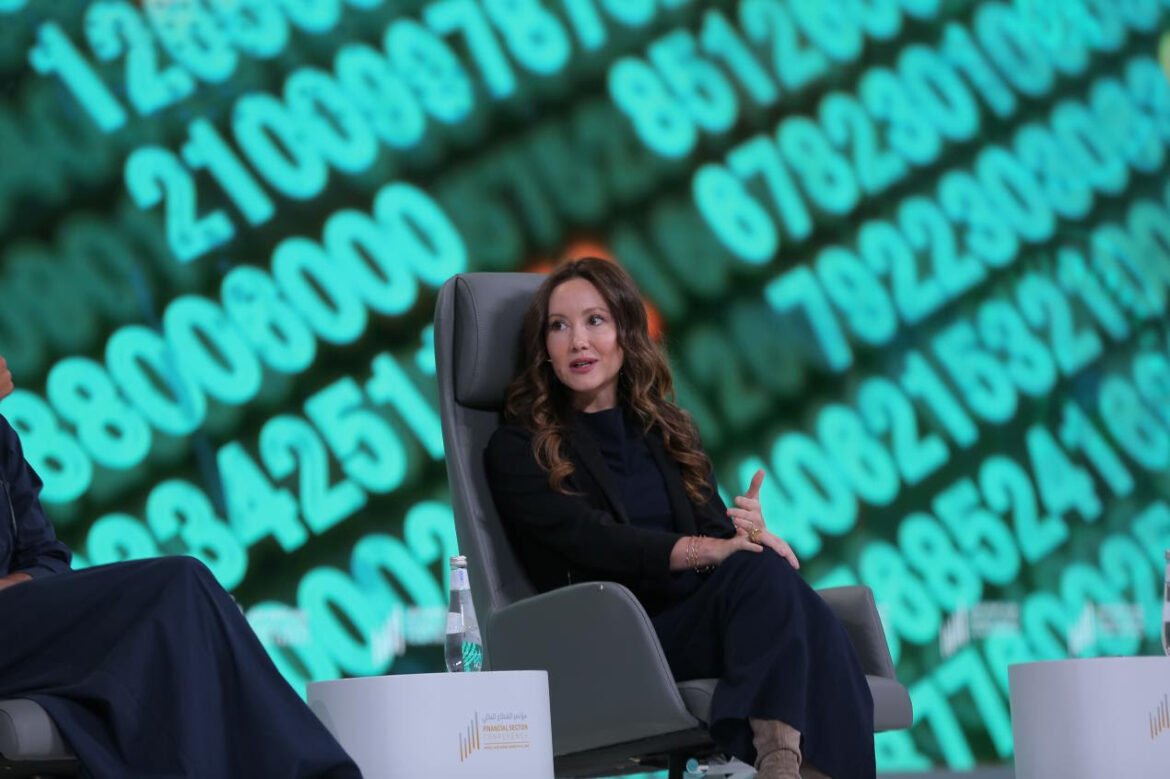The second edition of the Financial Sector Conference (FSC 2023) has concluded in Riyadh, with a mood of optimism and energy to overcome market challenges to build a stronger, technology driven and sustainable economy of the future.
Over 3200 participants from 82 countries assembled in the Saudi capital to discuss the way ahead for the global financial community under the conference theme of “Promising Financial Prospects.”
Representatives from some of the biggest global financial institutions joined government finance Ministers to listen to over 100 speakers identify the most effective road map for future growth and prosperity for the sector – enabling greater use of technology; diversification; cross border cooperation and embracing the green economy.
The conference also saw multiple MOUs and agreements signed to support real estate development; FinTech development and digital financing solutions worth billions of dollars and the National Bank of Iraq announced the start of operations in Saudi Arabia.
Concluding the conference, Saudi Central Bank Governor HE Ayman Mohammed Alsayari,
highlighted the Kingdom’s efforts to provide an attractive environment for FinTech companies in line with the goals of Vision 2030, and the vital role they play to support the growth of the private sector, diversify the economy and stimulate saving, financing and investment.
He thanked the participants from around the world who attended FSC 2023 and extended a warm welcome to the third edition of the conference in the future.
Over the course of the conference the important role of Venture Capital was debated. Courtney Powell, Chief Operating Officer and Managing Partner, 500 Global, said: “Since we made our first investment in the Middle East in 2012, we have seen absolutely incredible growth. Of the first 180 seed investments we made across VCs, we have 14 companies today valued at over $100 million. And it is critical for governments to support VCs because these are the companies that will create more jobs in the region.
“When it comes to entrepreneurs, the willingness of the government to support them combined with the opening up of Saudi Arabia indicates how it will be a dominant player in the MENA region. It has the potential of becoming a leading global hub for entrepreneurship.”
In discussion about the future of global money flows, HE Giancarlo Giorgetti, Italian Minister of Economy and Finance stated: “In the financial sector, fragmentation induced by geopolitical tension will have strong implications by affecting global and financial stability, the cross-border allocation of capital, international payment systems, and asset prices.”
Egyptian Minister of Finance HE Dr. Mohamed Maait, added: “To ensure the financial market and global financial system are available and valid for all sectors, we need to consider many dimensions, including investor confidence in the current international economic order. Digitalisation and innovative methods for making money flows quicker and more efficient have to be used with careful methods and with some advanced regulations to ensure maximum benefits from this technology.”
Bahrain’s Minister of Finance and National Economy, HE Shaikh Salman Bin Khalifa Al Khalifa told the conference: “During times of crisis, traditionally what happens is there is a flight to quality within markets and banking systems amidst uncertainty. But one of the things it demonstrates is the imperative for deepening capital markets. By listing large companies, creating market liquidity, and fostering depth in the capital market, you manage to become the market to which people go.”
Financing for the SME sector was a key debating point on the final day of the conference with the enormous growth of the sector both in the Middle East and internationally. Tala Al Jabri, Board Member, Middle East VC Association (MEVCA) identified a major financing gap for the sector. He said: “95% of enterprises in the region are SMEs and the loan profile that goes to them is only 7% – which is the lowest in the world, indicating a massive gap.”
The FinTech sector in Saudi Arabia meanwhile is flourishing as Ziad Alyousef, Deputy Governor for Development and Technology, Saudi Central Bank (SAMA) explained: “In 2018, there were less than 10 companies operating in the FinTech community. Now, there are over 155 companies operating in this space in Saudi Arabia and this has led to increased investments and job creation.”
On the sidelines of the conference a number of agreements and MOUs were signed with a focus on the real estate and FinTech sectors. Miyar Capital signed MOUs to create real estate funds with Jeddah Real Estate and Aseel Capital with a total investment of $365 million. Other real estate projects were announced including Al-Jazira Capital and Mohammed Saad AlAjlan Real Estate Company signing the launch of the Al Jazira, Al Malqa, and Al Ajlan Real Estate Fund, while BMK, Bandar Real Estate Company, and Masader Real Estate Company signed a separate agreement to establish a Real Estate Fund in Eastern Province and Sedco Capital launched a real estate development fund.
The growing importance of the FinTech sector at the regional and global level was reinforced by Fintech Saudi signing 4 MoUs with the Saudi Aramco Entrepreneurship Center; VISA; FaceKI and the National Centre for Government Resources Systems. VISA and Alinma Bank also signed an agreement to launch innovative FinTech payment solutions. Payments solutions provider Tamara meanwhile announced a regional first with a deal to secure up to $150 million debt financing from Goldman Sachs.
FSC 2023 was organised by the Ministry of Finance, Saudi Central Bank, and Capital Market Authority – who are key partners in the Kingdom’s Financial Sector Development Program, a key cornerstone of Saudi Arabia’s Vision 2030.




